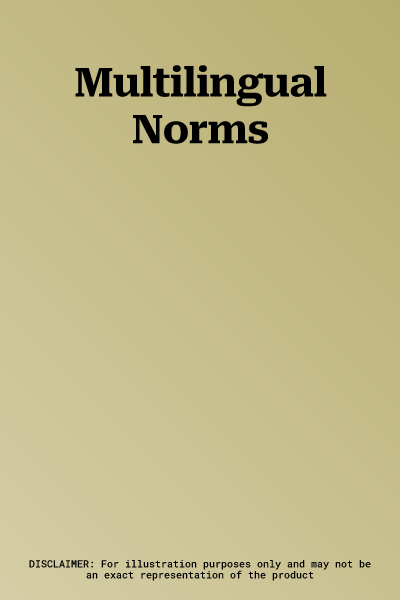Multilingual NormsPaperback, 26 April 2023

Qty
1
Turbo
Ships in 2 - 3 days
In Stock
Free Delivery
Cash on Delivery
15 Days
Free Returns
Secure Checkout

Print Length
420 pages
Language
English
Publisher
Peter Lang Gmbh, Internationaler Verlag Der Wissenschaften
Date Published
26 Apr 2023
ISBN-10
3631902794
ISBN-13
9783631902790
Description
Product Details
Book Format:
Paperback
Country of Origin:
DE
Date Published:
26 April 2023
Dimensions:
21.01 x
14.81 x
2.26 cm
Genre:
Multicultural
ISBN-10:
3631902794
ISBN-13:
9783631902790
Language:
English
Location:
Frankfurt a.M.
Pages:
420
Weight:
517.09 gm